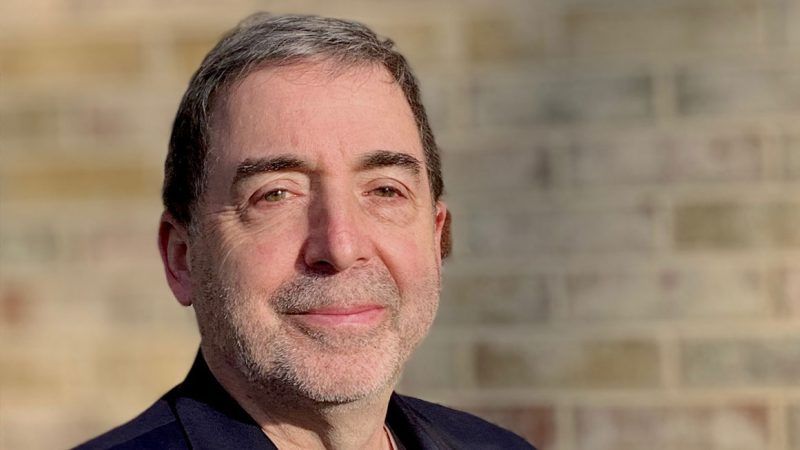Russ Roberts on October 7 and the Future of U.S.-Israel Relations
"I've never been in favor of that aid. I've always opposed it. I don't think it's good for Israel," the American-Israeli economist tells Reason.

Russ Roberts moved from the U.S. to Jerusalem to become president of Shalem College in 2021. He hosts a popular economics podcast, EconTalk. Zach Weissmueller and Liz Wolfe interviewed Roberts on Reason's YouTube show Just Asking Questions about what it was like in Israel on October 7 when Hamas attacked.
Q: What was October 7 like for you in Israel?
A: It's not quite what we expected when we moved here two-plus years ago. But I will say that being here is deeply meaningful, and I'm very glad I'm here.
October 7 was a tough day. It was a Saturday, which means that people who keep Jewish law, as I do, do not use their phones or watch television. I first found out what was going on that day when I heard a noise. My daughter-in-law said, "I think that's a siren." Then we heard two explosions and she said, "I think that's a bomb. I think we should go to the bomb shelter."
We bundled up the six of us, and we went down around the corner where there's a bomb shelter in a synagogue and we sat there for a while. Those two explosions we heard were Iron Dome intercepting rockets from Gaza. We're about 50 miles from Gaza here in Jerusalem. So it takes about 90 seconds for a rocket to arrive, or at least once the siren is sounded, to get safety. It happened three or four more times during the day. And we heard a lot of rumors.
There were two very sad moments that morning. One was that we heard a rumor that five people had been kidnapped. We were just horrified at the thought of that. Of course, we later found out it was more like 240. The second sad thing was that someone in the synagogue said to me, "I'll be back in a minute" and he went downstairs to say goodbye to his son who was on his way to the front. On that day, thousands of reservists were called up. The army was mobilized. It took a tragically long time to get the army down to the Gaza area where the attacks took place. Of course, Israelis all over the world streamed back. Over 100 percent of the requests for people on reserve duty were filled, meaning they demanded and asked for people to come and many, many more answered the call. Over 100,000 Israelis overseas just came back to face danger. It's a precious thing about this place that there's loyalty and a sense of national pride.
Q: How much internal rage would you say there is related to Israeli intelligence failures?
A: I am moved by how little rage there is here or bloodlust for revenge against Hamas. The situation has to change. People here are, given what happened, surprisingly calm, certainly a lot of anger toward Hamas given the monstrosities that were committed. A lot of shock, despair, mourning. It's an emotional roller coaster to summarize it for me living here. There are days where I'm incredibly sad about how hard it's going to be for this to turn out well, and there are days where I'm extremely moved and inspired by the opportunity to be part of the response to this challenge.
Q: How do you view the relationship between the U. S. and Israel?
A: The United States gives about $3 billion a year to Israel. That is not free money. It's $3 billion of credits that Israel has to use in the U.S. military grocery store, meaning it's for purchasing U.S. weapons, aircraft, etc. It's a subsidy to both Israel and the U. S. defense industry. Historically, I've never been in favor of that aid. I've always opposed it. I don't think it's good for Israel. We're now a very rich country. Israel has a pretty high standard of living. We can pay for our own equipment if we want.
I think the trickier part of the relationship is what's happening right now. There are two aircraft carriers in the eastern side of the Mediterranean and a nuclear submarine—mainly to threaten Iran and Iran's friend Hezbollah. That carries a lot of weight, but it's a threat you never want to carry out.
This interview has been condensed and edited for style and clarity.


Show Comments (28)